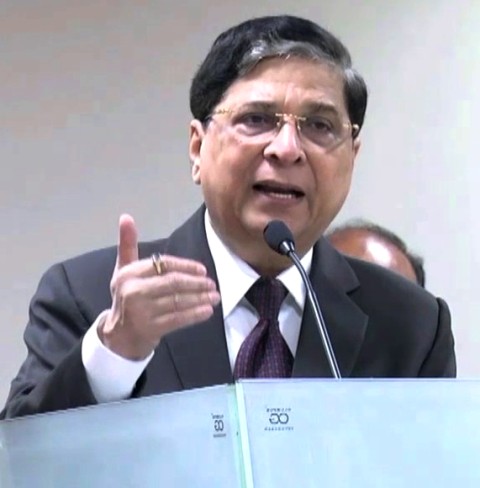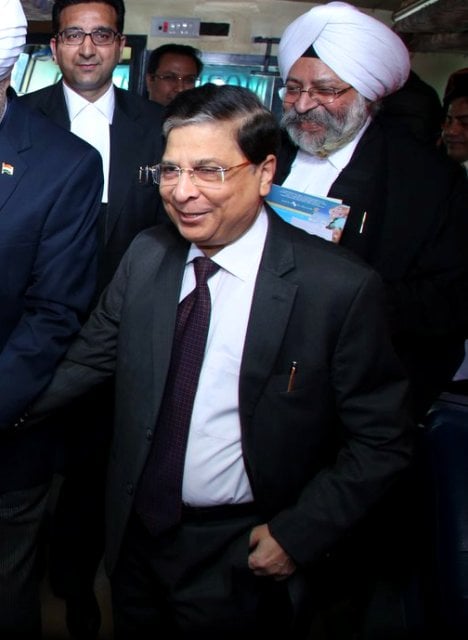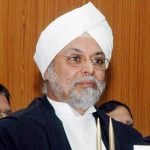Dipak Misra (Chief Justice of India) Age, Biography, Wife, Family, Facts & More
| Bio | |
|---|---|
| Real Name | Dipak Misra |
| Profession | Law Personnel (Chief Justice of India) |
| Physical Stats & More | |
| Height (approx.) | in centimeters- 163 cm in meters- 1.63 m in feet inches- 5’ 4” |
| Weight (approx.) | in kilograms- 65 kg in pounds- 143 lbs |
| Eye Colour | Black |
| Hair Colour | Salt & Papper |
| Personal Life | |
| Date of Birth | 3 October 1953 |
| Age (as in 2016) | 63 Years |
| Birth Place | Cuttack, Odisha (formerly Orissa), India |
| Zodiac sign/Sun sign | Libra |
| Nationality | Indian |
| Hometown | Cuttack, Odisha (formerly Orissa), India |
| School | Not Known |
| College | Not Known |
| Educational Qualification | Law Degree |
| Family | Not Known |
| Religion | Hinduism |
| Hobbies | Reading, Writing |
| Controversies | • In 1985, the additional district magistrate of Cuttack passed an order to cancel a lease, which he had obtained for two acres of agricultural land in Cuttack in 1979. • In July 2016, he failed to recognise top Criminal Lawyer UR Lalit (a law doyen and father of his colleague Justice U U Lalit) while Justice Misra was hearing an appeal of Rahul Gandhi in a defamation case. Justice Misra went on to inquire about his experience of practice in criminal law. |
| Girls, Affairs and More | |
| Marital Status | Married |
| Wife/Spouse | Name Not Known |
| Children | Not Known |
| Money Factor |
|
| Salary | 2.8 Lakh/Month (as in 2017) |
| Net Worth | Not Known |
Some Lesser Known Facts About Dipak Misra
- Does Dipak Misra smoke?: Not Known
- Does Dipak Misra drink alcohol?: Not Known
- Justice Misra is a nephew of Ranganath Misra who was the Chief Justice of India from September 1990 to November 1991.
- On 14 February 1977, he was enrolled at the Bar and practised at the Orissa High Court and the Service Tribunal.
- In 1996, he was appointed as an Additional Judge of the Orissa High Court.
- In 1997, he was transferred to the Madhya Pradesh High Court.
- On 19 December 1997, he was made a Permanent Judge of Madhya Pradesh High Court.
- In December 2009, Justice Misra was appointed the Chief Justice of Patna High Court where he served until May 2010.
- In 2010, he was appointed the Chief Justice of Delhi High Court and served there until his elevation to the Supreme Court of India on 10 October 2011.
- In August 2017, the incumbent Chief Justice of India, Jagdish Singh Khehar, recommended the name of Justice Dipak Misra as the 45th Chief Justice of India.
- Justice Misra has almost more than 7 years of experience as a Justice of Supreme Court of India.
- He is expected to have a tenure of over 14 Months till 2 October 2018 as the Chief Justice of India.
- Justice Misra passed a judgment in the Own Motion vs State case, directing the Delhi Police to upload FIRs on their website within 24 hours of the FIRs being lodged.
- The Bench of Justice Misra and Justice Dalveer Bhandari rejected the Uttar Pradesh Government’s decision to provide reservation in promotion.
- Justice Misra led Bench rejected the appeal of Yakub Memon (the 1993 Mumbai serial blasts convict) to stop his execution. He then received a death threat in the form of an anonymous letter that read “irrespective of the protection you may avail, we will eliminate you.”
- On 5th May 2017, a Three Judge Bench led by Justice Misra upheld the death sentence awarded to the 4 convicts of the Nirbhaya Rape case. The “brutal, barbaric and diabolic nature” of the crime could create a “tsunami of shock” to destroy a civilised society, the verdict, penned by Justice Misra, had said.
- He is the third person from Odisha to become the Chief Justice of India, after Justice Ranganath Misra and Justice GB Pattanaik.
- Justice Misra is also an ardent supporter of “Legal Aid to All.” He is also the Executive Chairman of the National Legal Services Authority (NALSA), Justice Misra embarked on a programme to turn State Legal Services Authorities’ offices into hubs providing facilities that enable litigants under legal aid to access court documents, case status and connect to their advocates online and through dedicated phone numbers. In a statement, Justice Misra said, “No undertrial or prisoner shall remain without legal aid. Every case has a human face”.










